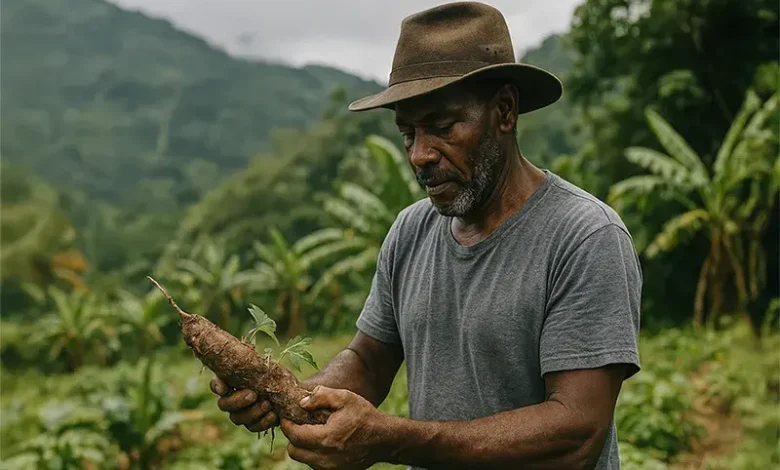National Agriculture Policy

Dominica’s National Agriculture Policy is a strategic framework designed to revitalise the agricultural sector, ensure food security, and promote sustainable development. Recognising the critical role agriculture plays in the nation’s economy and livelihoods, this policy seeks to address challenges and harness opportunities within the sector.
Vision and Objectives of Dominica’s National Agriculture Policy
The policy envisions a resilient and diversified agricultural sector that contributes significantly to economic growth, rural development, and environmental sustainability. Its primary objectives include:
- Enhancing Food Security: Ensuring a stable and sufficient supply of nutritious food for the population.
- Promoting Sustainable Practices: Encouraging environmentally friendly farming methods to preserve natural resources.
- Boosting Competitiveness: Improving productivity and market access for farmers to compete effectively both locally and internationally.
- Strengthening Resilience: Building the capacity of the agricultural sector to withstand and recover from climatic and economic shocks.
Key Components
To achieve these objectives, the policy focuses on several strategic areas:
- Institutional Strengthening: Recognizing the need for effective governance, the policy advocates for restructuring the Ministry of Agriculture and Forestry, Wildlife and Parks Division to enhance its focus on critical areas such as policy formulation, planning, and service delivery. This includes improving coordination among various stakeholders and ensuring that the ministry is equipped to address emerging challenges in the agricultural sector.
- Climate Resilience and Sustainability: In light of Dominica’s vulnerability to natural disasters, the policy emphasizes building a more resilient agriculture sector. This involves adopting sustainable agricultural practices, promoting climate-smart technologies, and positioning Dominica as a Global Center for Agricultural Resilience (GCARD). The policy aligns with the broader Climate Resilience and Recovery Plan, aiming for 60% of farmers to adopt sustainable practices.
- Labor Force Development: Addressing labor shortages in agriculture is a critical component. The policy supports initiatives like the establishment of the National Agricultural Labour Task Force, which aims to develop migration responses to support the agricultural workforce. This includes assessing labor needs, improving data collection, and implementing strategies to attract and retain agricultural workers.
- Modernization and Diversification: The policy advocates for the modernization of agricultural practices through the adoption of new technologies and diversification of crop production. This approach aims to increase productivity, reduce dependency on traditional crops, and open new market opportunities for farmers.
Implementation Strategy
The successful execution of the National Agriculture Policy relies on collaborative efforts among government agencies, farmers, private sector partners, and international organizations. The Division of Agriculture plays a pivotal role in providing extension services, regulatory oversight, and support to farmers.
International cooperation is also integral, with organizations like the Inter-American Institute for Cooperation on Agriculture (IICA) assisting in policy development and capacity building to enhance resilience and sustainability within the sector.
Alignment with National and Regional Strategies
The National Agriculture Policy aligns with Dominica’s broader development frameworks, such as the National Resilience Development Strategy Dominica 2030, which promotes food security through smart agricultural growth, modernization, and diversification.
Furthermore, the policy complements regional initiatives under the CARICOM, aiming to strengthen agricultural development and cooperation among member states.
A Roadmap for Dominica’s Agriculture Future
Dominica’s National Agriculture Policy serves as a comprehensive roadmap for transforming the agricultural sector into a resilient, sustainable, and economically viable component of the nation’s development. By focusing on institutional strengthening, climate resilience, labor force development, and modernization, the policy aims to ensure food security and improve the livelihoods of those dependent on agriculture.




